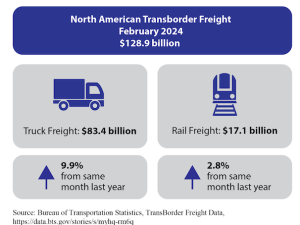The $5 billion Ann Arbor, Michigan-based company said it has limited "visibility" on how this peak period will shake out, as more manufacturers keep lean inventories and order as they need products.
"But usually, by the time the prognosticators on CNBC are starting to say it looks like we're in a recession, we've already seen it for 30 to 45 days as an industry," said Chief Executive Douglas Stotlar said in an interview. "We're not seeing that."
Volume softened this year until the second half of July and has been picking up since, with September topping August.
"We're seeing normal seasonal patterns, albeit from a more muted base than what we were expecting this year," Stotlar said. "We don't seem to be in a deteriorating environment."
Economic worries have slammed transportation company stock this year and Con-way's shares are no exception, falling about 33 percent.
But there are signs that customers are planning for a pick-up in demand this autumn.
"Some of our retail truckload customers have asked us to actually increase their trailer pools going into October because they are anticipating more demand ... they might be anticipating a little bit of a surge," Stotlar said. "Whether it will materialize or not, we just don't know."
Gregory Lehmkuhl, named this month as president of Con-way Freight Inc, the company's largest division, cited the "unstable economy" as the highest hurdle.
"Our customers are unsure what's going to happen. We're unsure what's going to happen," he said in the interview.
Costs related to healthcare and regulation are concerns close behind the broad economic challenges.
"We don't really know what's going to happen on the healthcare front and we continue to see our health expenses rise," Lehmkuhl said.
Regulations that impact the number of hours truckers can drive, as well as publicly track safety records are weeding out unsafe drivers, reducing the pool of available workers and raising training and other costs.
Still, Con-way has been able to pass along some of its higher expenses via rate increases.
Con-way Freight, the less-than-truckload division that accounts for 60 percent of Con-way's revenue, raised rates by an average of 6.9 percent on some shipments, starting in August.
In less-than-truckload (LTL) shipping, the company maintains facilities in key markets, picks up loads, sorts them and makes various deliveries.
This differs from the truckload business, in which there is no facilities network and one driver picks up the load and stays with it all the way to its destination.
"Customers overall realize that prices have come down so much in the last two years that it is unsustainable," Lehmkuhl said.
Most of the company's customers are on 12-month contracts and higher rates are generally being negotiated.
"While rates are going up, the less-than-truckload industry as a whole is struggling to cover the cost of capital necessary to reinvest," Stotlar added. "Nobody in the industry right now has rates higher than they were in 2008." (Reuters)







